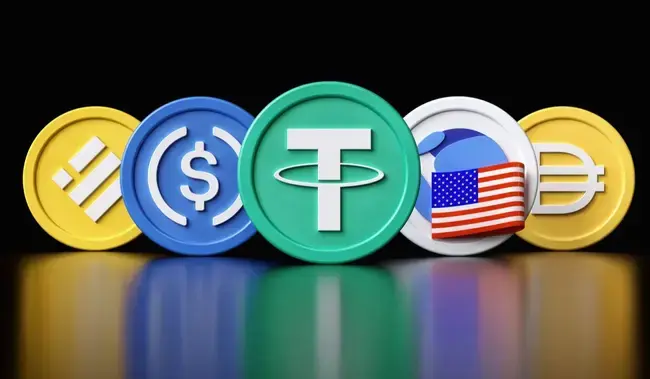Highlights:
- The new bill requires stablecoin issuers to maintain equal reserves to help minimize market instability.
- Republicans have also introduced a competing stablecoin bill that gives the OCC authority instead of the Federal Reserve.
- The Congress is forming a bipartisan working group to create stablecoin rules.
Maxine Waters, a ranking member of the House Financial Services Committee, has presented a new proposal to establish rules that will govern stablecoins. The proposed draft legislation has outlined federal oversight structures and standards that stablecoin issuers must meet. The bill gives oversight responsibility to the Office of the Comptroller of the Currency (OCC), the Federal Reserve, and the Federal Deposit Insurance Corporation (FDIC). State regulatory bodies will collaborate with federal authorities to ensure oversight of stablecoin operations.
TOP DEMOCRAT REP. MOVES TO REGULATE STABLECOINS WITH FED INVOLVEMENT
Maxine Waters has introduced a discussion draft focused on regulating stablecoins, bringing the Federal Reserve, FDIC, and the Comptroller of the Currency into the fold.
The bill mandates that issuers maintain… pic.twitter.com/xjBwrMJw9X
— Crypto Town Hall (@Crypto_TownHall) February 10, 2025
The bill requires stablecoin issuers to maintain equal reserves to help minimize market instability. The proposal by Waters is different from the legislation introduced by Republicans that she opposed. The Republican bill allowed state regulators to approve stablecoin issuers without the oversight of the Federal Reserve. However, Waters is in support of the need for a bipartisan collaboration to create stable regulations for stablecoins.
Republican Lawmakers Push Competing Bill
Additionally, Republican legislators have presented their framework for regulating stablecoins. Representative French Hill and Bryan Steil introduced a draft bill to establish their regulatory framework for stablecoins last week. The proposed legislation allows the OCC to supervise nonbank stablecoin issuers rather than subject them to oversight from the Federal Reserve.
HOUSE REPUBLICANS UNVEIL STABLECOIN BILL FOR CLEAR REGULATION
House Republicans have introduced a new draft bill to regulate stablecoins, with French Hill and Bryan Steil leading the charge.
The bill aims to create a clear regulatory framework for payment stablecoins, ensuring… pic.twitter.com/iaatdJJAjX
— Crypto Town Hall (@Crypto_TownHall) February 7, 2025
This legislation would enable financial technology firms to launch stablecoin products while operating under established regulatory oversight. These policies support Republican efforts to establish digital asset rules that promote private sector involvement.
Waters has presented concerns regarding the Republican legislative plan. Her proposal contains provisions to stop stablecoin issuers from using overseas operations to circumvent U.S. laws and regulations. The proposed bill aims to prohibit convicted fraud offenders from taking leadership roles within stablecoin companies. The Republican bill fails to include these protections.
Senate and Broader Congressional Efforts on Stablecoin Regulation
Senator Bill Hagerty recently introduced the GENIUS Act in the Senate. The proposal aims to create a standardized national oversight system for stablecoins. The system will prioritize risk control and regulatory compliance. The bill has proposed that the Federal Reserve should oversee the operation of stablecoin issuers.
The tide has turned in favor of digital assets here in America. I’m pleased to lead my colleagues in the GENIUS Act, which will help make our nation a positive environment for stablecoins and digital assets. pic.twitter.com/osNj1t7Qtj
— Senator Bill Hagerty (@SenatorHagerty) February 4, 2025
The GENIUS Act has divided stablecoin issuers into categories based on their collateral assets. The Federal Reserve will regulate stablecoin issuers with assets above $10 billion, while state regulators will regulate smaller stablecoin issuers. The Senate Banking Committee is currently reviewing the bill for additional assessment.
Lawmakers have formed a bipartisan working group composed of members from four House committees. The working group is working to establish a comprehensive regulatory structure that will govern stablecoins and other digital assets. The ongoing discussions by members drawn from the four committees will help shape the future of stablecoin legislation.
The Trump administration has indicated plans to regulate stablecoins. The President signed an executive order to form a working group dedicated to developing digital asset policies. David Sacks revealed that the administration plans to enable stablecoin development within American borders.
Best Crypto Exchange
- Over 90 top cryptos to trade
- Regulated by top-tier entities
- User-friendly trading app
- 30+ million users
eToro is a multi-asset investment platform. The value of your investments may go up or down. Your capital is at risk. Don’t invest unless you’re prepared to lose all the money you invest. This is a high-risk investment, and you should not expect to be protected if something goes wrong.






